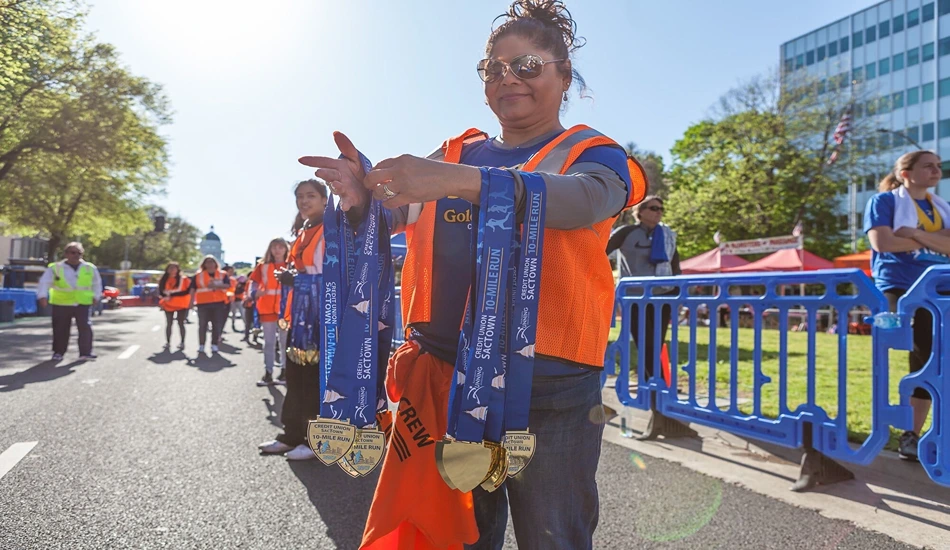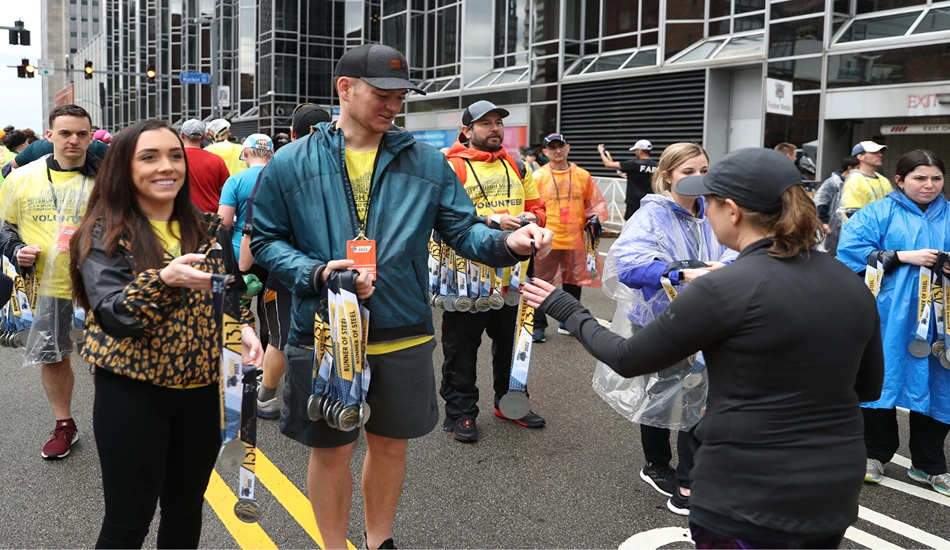Maximize success in sports tourism events: learn why volunteers are the heartbeat of your event and how to harness their potential, even if you’re new to volunteer management
Behind every successful sports tourism event lies an army of dedicated volunteers. From registration and ticketing to crowd control and security, these individuals play pivotal roles in coordinating various aspects of the event. Volunteers become the friendly faces that welcome participants and attendees, ensuring a positive and well-organized experience for all. Beyond the event itself, volunteers serve as ambassadors for their communities. As they interact with tourists and participants, they foster positive perceptions of the host destination.
As an event planner or coordinator, you understand that volunteers are the backbone of many successful events, especially in the world of sports. A well-organized and motivated volunteer team can make a significant difference in the overall experience of both participants and spectators. Whether you’re an experienced coordinator or just starting out, it’s crucial to grasp the fundamental steps to make sure your volunteer program not only runs smoothly but also boosts the success of your sporting events.
So, what steps can you take to prepare a successful volunteer program?
1. Set the Stage with Clear Objectives
Every successful event begins with a clear understanding of its objectives. As an event planner or coordinator, your first task is to define what you want to achieve with the help of volunteers. Are you aiming to streamline logistical operations, enhance attendee satisfaction, or foster community engagement? Having well-defined objectives will guide your volunteer management strategy.
2. Recruit Volunteers Strategically
Identify your target audience. This will help you direct your energy to the right networks. Craft detailed job descriptions that not only outline roles and responsibilities but also emphasize the benefits of volunteering at your event. Leverage various channels such as social media, your event website, and local community networks to reach potential volunteers. Don’t forget to tap into the wealth of experience that returning volunteers can bring to the table.
3. Equip your Volunteers with Knowledge
A well-trained volunteer team is a confident and productive one. Host comprehensive orientation sessions before the event, covering event specifics, volunteer roles, and expectations. Provide training materials and resources to ensure your volunteers feel well-prepared for their roles. Help them understand the event’s mission and how their contributions play a vital part in its success.
4. Communicate Effectively
Communication is key to any successful endeavor. Establish a robust communication strategy to keep your volunteers informed and engaged. Utilize tools like email, SMS, and social media. Clear, consistent communication builds trust with your volunteers, further motivating them to invest in your mission.

5. Craft a Seamless Schedule
Ensure that your volunteer schedule is well-structured, accounting for various shifts, breaks, and rotations. Leverage scheduling features from volunteer management platforms to avoid overbooking or gaps in coverage. Volunteers should have access to their schedules well in advance for proper planning.
6. Have a Plan for On-site Management
On the day of the event, effective on-site management is crucial. Designate a competent volunteer coordinator to oversee operations and handle any issues that may arise. Provide clear identification for your volunteers, such as uniforms or badges, to distinguish them from event attendees. Establish a central check-in point at the event venue for volunteers to gather and receive instructions.
7. Recognize and Appreciate Volunteers
Recognizing and appreciating your volunteers’ contributions is not just a nice gesture; it’s essential for morale. Express gratitude through thank-you notes/emails, certificates, or small tokens of appreciation. Consider organizing a post-event celebration or gathering to show your volunteers how much you value their efforts. If you already know you’ll be hosting the same event next year, use this gathering as an opportunity to get your volunteers excited to come back for more.
8. Gather Feedback for Continuous Improvement
Learning from each event is part of the event planning and coordination process. Collect feedback from your volunteers after the event to identify areas for improvement. Use this valuable input to refine your volunteer program for future events. Emphasize your commitment to continuous improvement.
9. Build Community Engagement
Highlight the positive impact of your volunteer program on the community. Share success stories and testimonials on your event website and social media channels. Encourage your volunteers to share their experiences, as this can attract new recruits and showcase your event’s community involvement.

Effective Volunteer Management Systems: A Must-Have Tool
Having a volunteer management system (VMS) is crucial for several reasons, particularly in the context of sports tourism organizing and retaining valuable coordinators:
- Efficient Resource Allocation: A volunteer management system helps you allocate volunteers efficiently. It enables you to match volunteers’ skills, interests, and availability with specific roles and tasks, ensuring that every volunteer contributes meaningfully to the event’s success.
- Streamlined Communication: Coordinating with a large volunteer workforce can be daunting without a system. Such a system provides a centralized platform for communication, making it easier to disseminate information, updates, and instructions to volunteers.
- Scheduling and Shift Management: Managing volunteer schedules and shifts can be a logistical nightmare without a system. A volunteer management system allows you to create, update, and communicate schedules effortlessly, reducing scheduling conflicts and no-shows.
- Data Management: Storing and managing volunteer data, including contact information, preferences, and training records, is simplified with a management system. It helps ensure data accuracy and compliance with privacy regulations.
- Scaling Your Program: As your sports tourism events grow, managing volunteers manually becomes increasingly challenging. A management system scales with your needs, allowing you to handle larger and more complex events effectively.
- Professionalism and Credibility: Utilizing a volunteer management system demonstrates professionalism to volunteers, sponsors, and participants. It instills confidence in your organization’s ability to execute events seamlessly, which can enhance your credibility and reputation.
- Cost-Efficiency: While there may be initial costs associated with implementing a management system, the long-term benefits, including reduced administrative workload and improved volunteer retention, can lead to significant cost savings.
As you embark on your journey to harness the potential of volunteers, remember that you’re entering a new era of sports tourism organizing. Leverage the latest technology to enhance your volunteer management efforts. With the right strategies and a passionate volunteer team, you can take your events to new heights and leave a lasting impact on participants and communities alike. Volunteers’ enthusiasm for your events can lead to increased tourism, benefiting the local economy and promoting future events.
Sports tourism can breathe new life into the communities that host events. Local volunteers in such locations are instrumental in showcasing their communities to a global audience. The genuine charm and warmth they exude leaves a lasting impression on athletes and fans, prompting them to return or explore other hidden gems. There has never been a more important time to build community; with a strong volunteer base, everybody wins.
By Paige Pennigar








